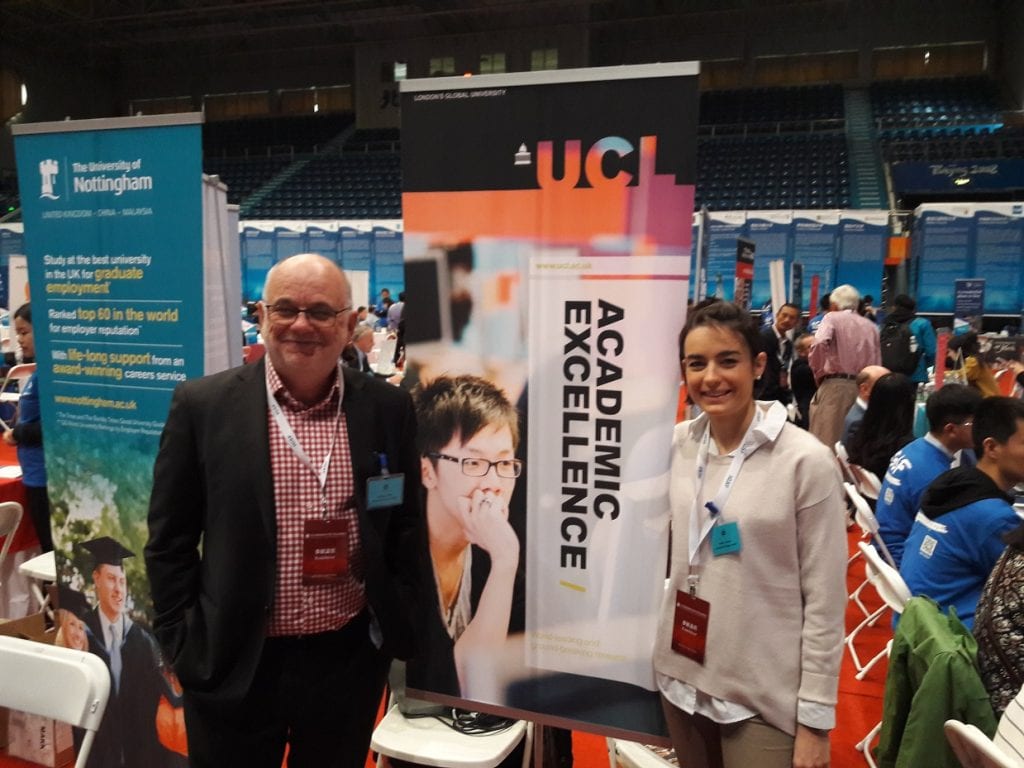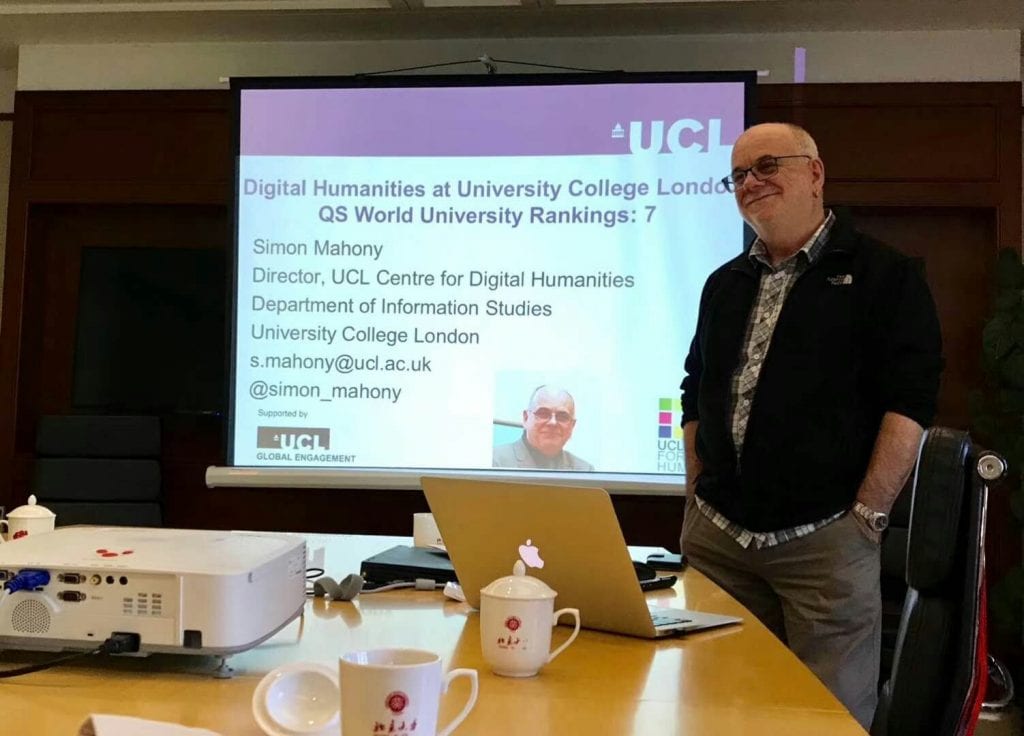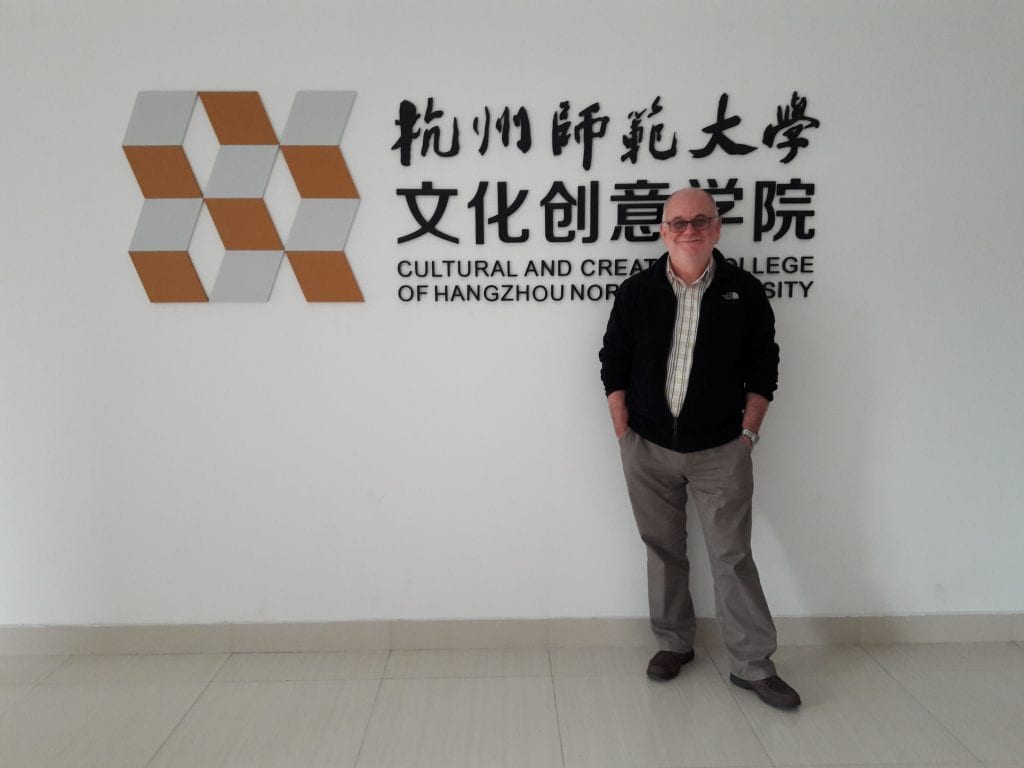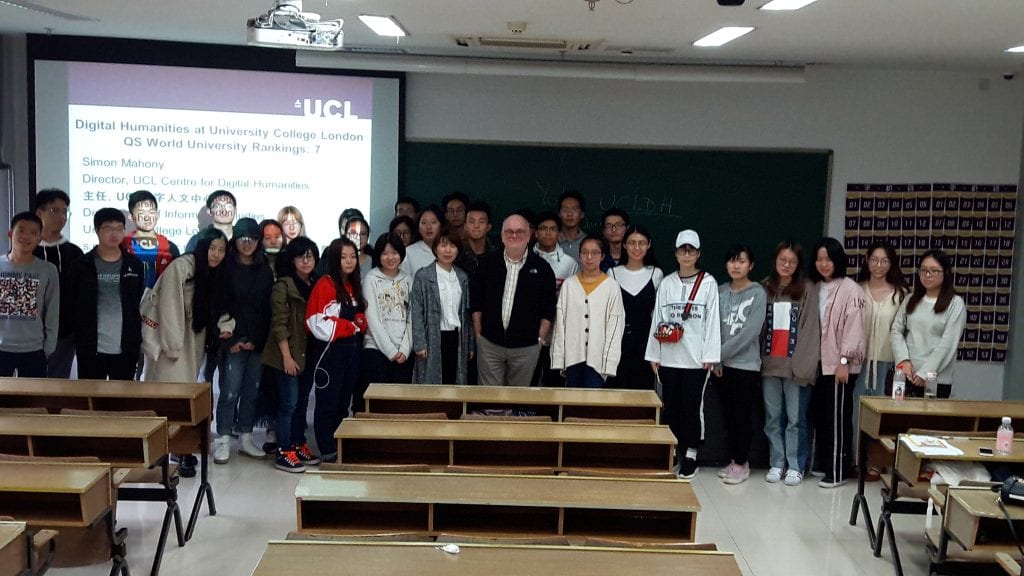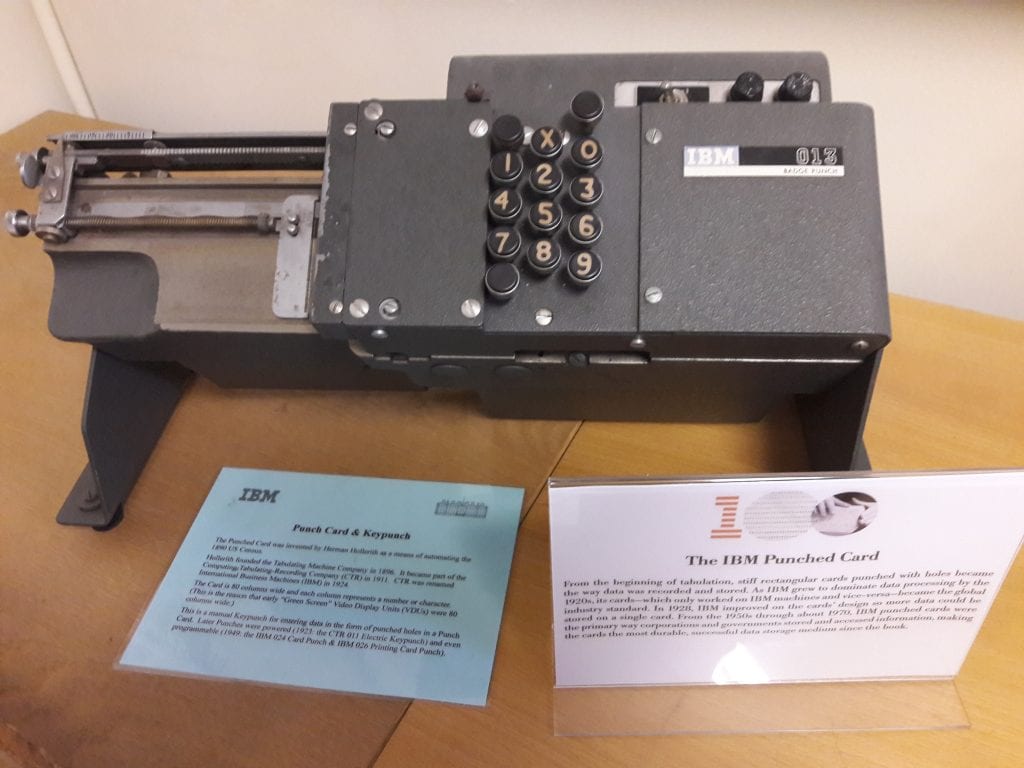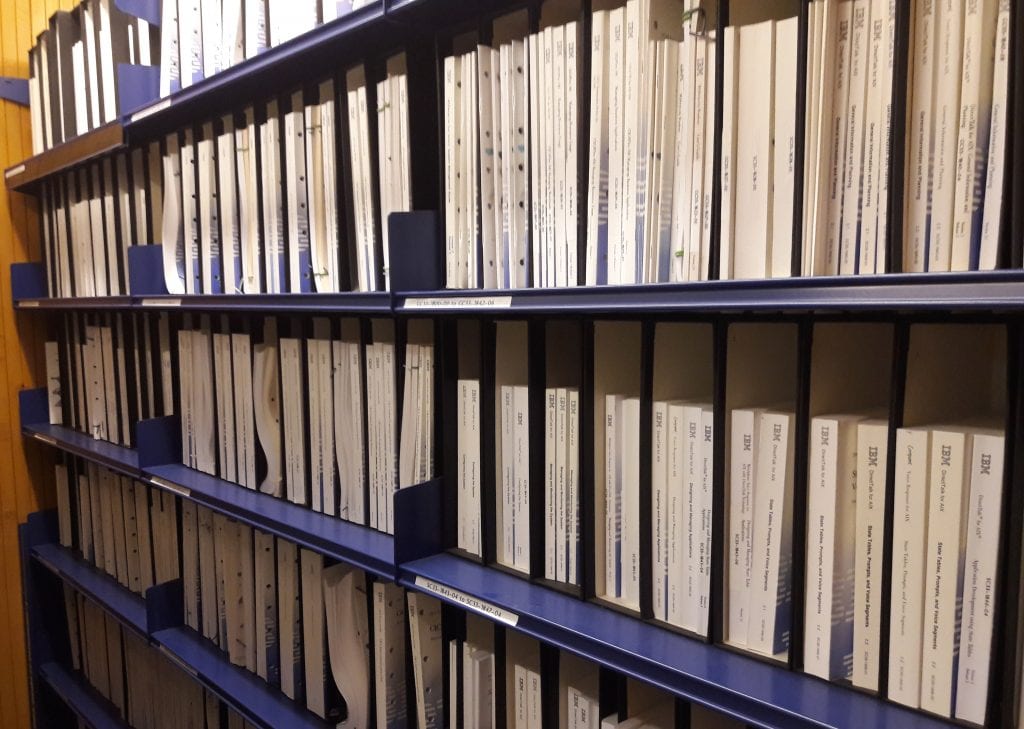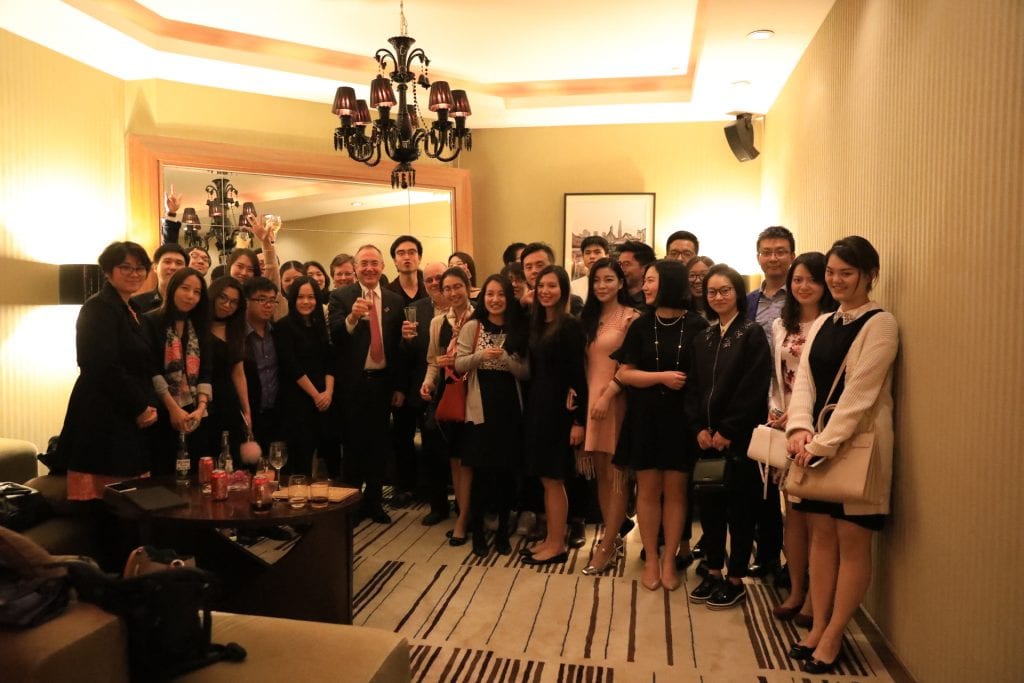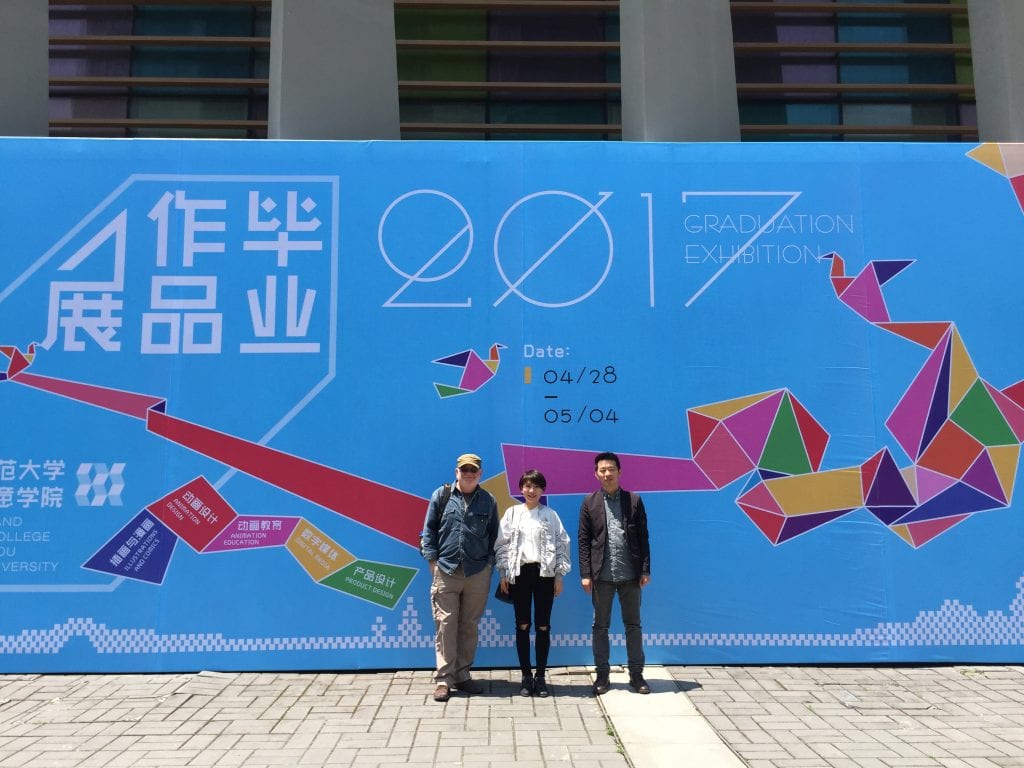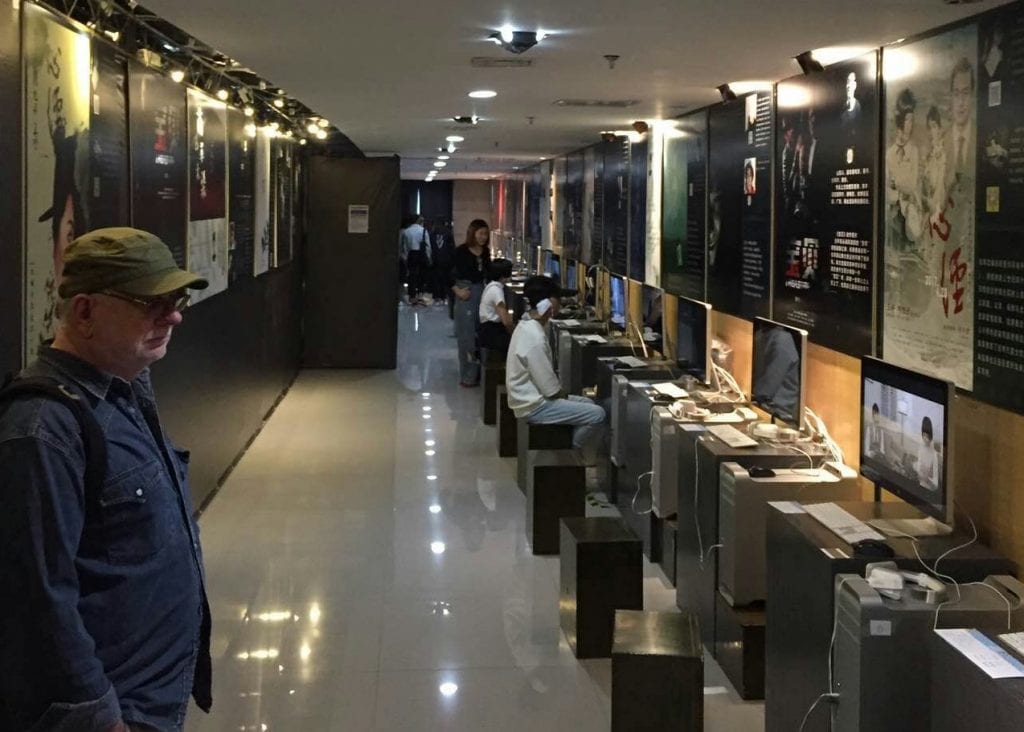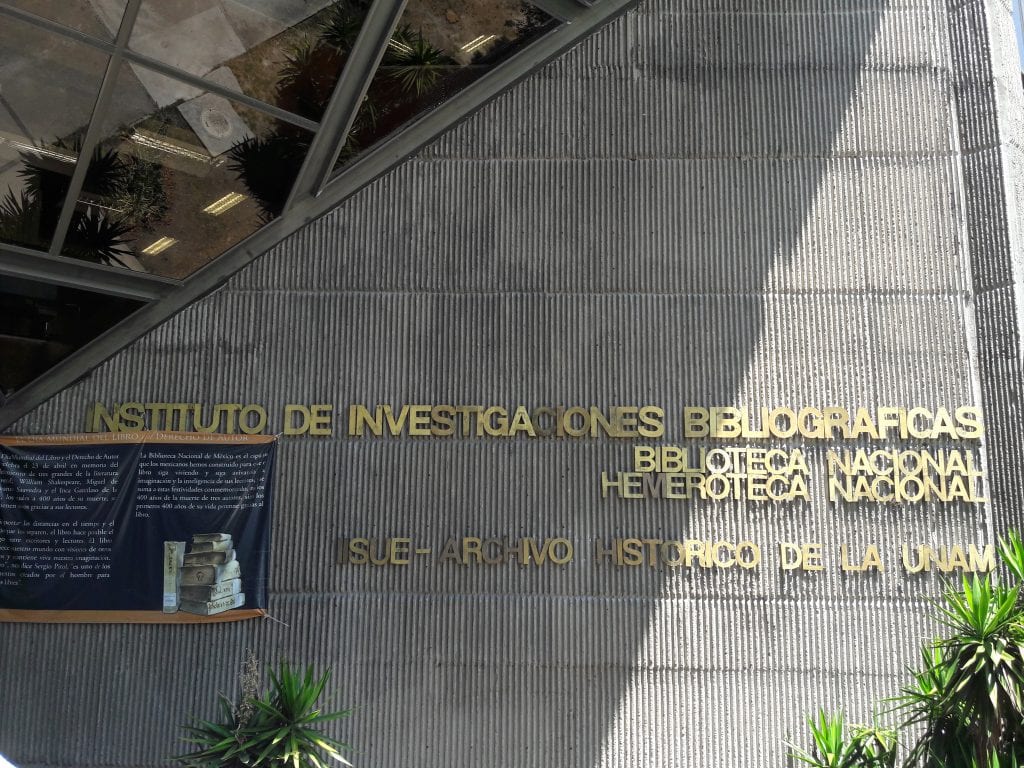Recently, I have been very pleased to be able to accept more networking and speaking invitations from the ever-growing number of DH groups in China. In November I was an invited speaker for the DH strand at the Cross-cultural, Cross-group and Comparative Modernity Conference in Fudan University Shanghai along with delegates from many different nationalities; interestingly (and fortunately for me) all the presentations were in English.

Banner for the conference at Fudan University Shanghai
December took me to Shenzhen, via Hong Kong, and the University Town Library there for the International Conference on Library and Digital Humanities. They had speakers, on a range of themes, from the UK and USA as well as China, and interestingly mostly from libraries where DH centres in China and the USA are usually found; my slot was in the Higher Education and Digital Humanities strand which enabled many conversations and new connections to be made.

International conference at the University Town Library, Shenzhen
One new such connection was with DH researchers at the Library of Shanghai, a public as well as an academic and research library with a strong and committed DH team. In January of this year I was greeted there with a magnificent lunch, a tour of their preservation and research labs, and introduced to their research projects involving both genealogy and the historic local built environment.
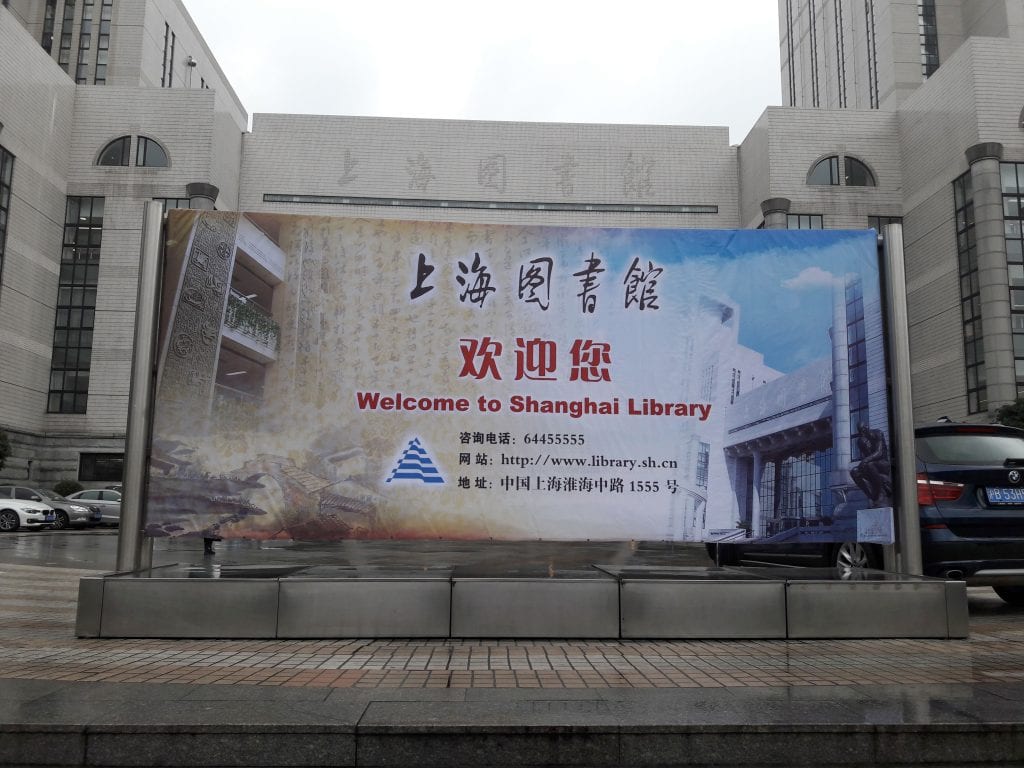
Shanghai Library
The January visit to Shanghai was enabled by funding from the UCL Global Engagement Fund that I received to support networking and research into interdisciplinary and cross-cultural education. Some of this funding was marked for the translation of teaching material for an undergraduate workshop at the China Academy of Art, Shanghai Institute of Design (that I have visited several times now) and as a follow up to the workshop I ran there in January 2017.

Workshop in Shanghai Institute of Design
This is a design institute and the students are great at producing videos but have no background in the Internet or the web and so this workshop mostly covers the coding of webpages along with the all important usability and accessibility built into the design. I, of course, have a translator but this helps with their English language learning too.
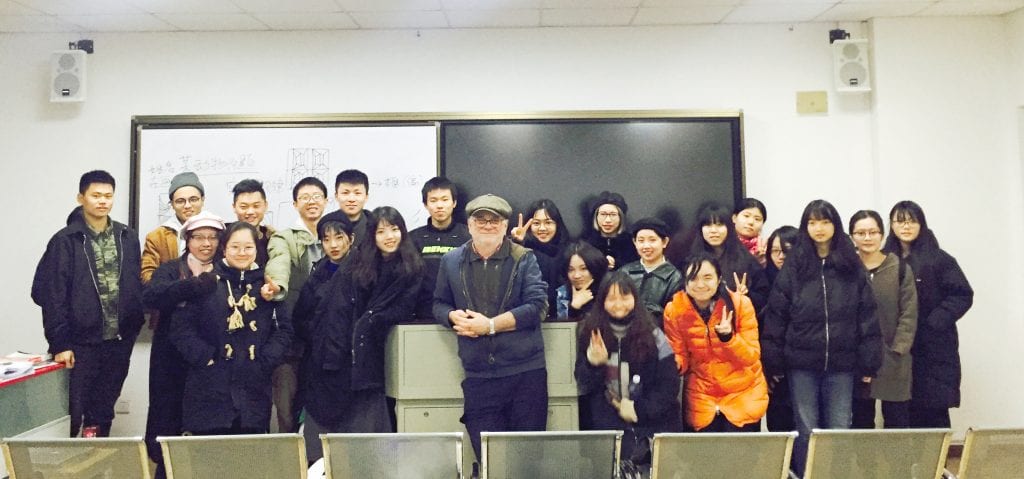
Group photo of students at the workshop
Remember when giving talks to Chinese students, always allow extra time at the end for group photos and selfies.
UCL’s Global Engagement funding covered the flights for the Shanghai visit and money to pay a student to help with translating the teaching materials which will go into a collection to later be released under an open licence as Open Educational Resources. Accommodation and hospitality was generously provided by the host institution.
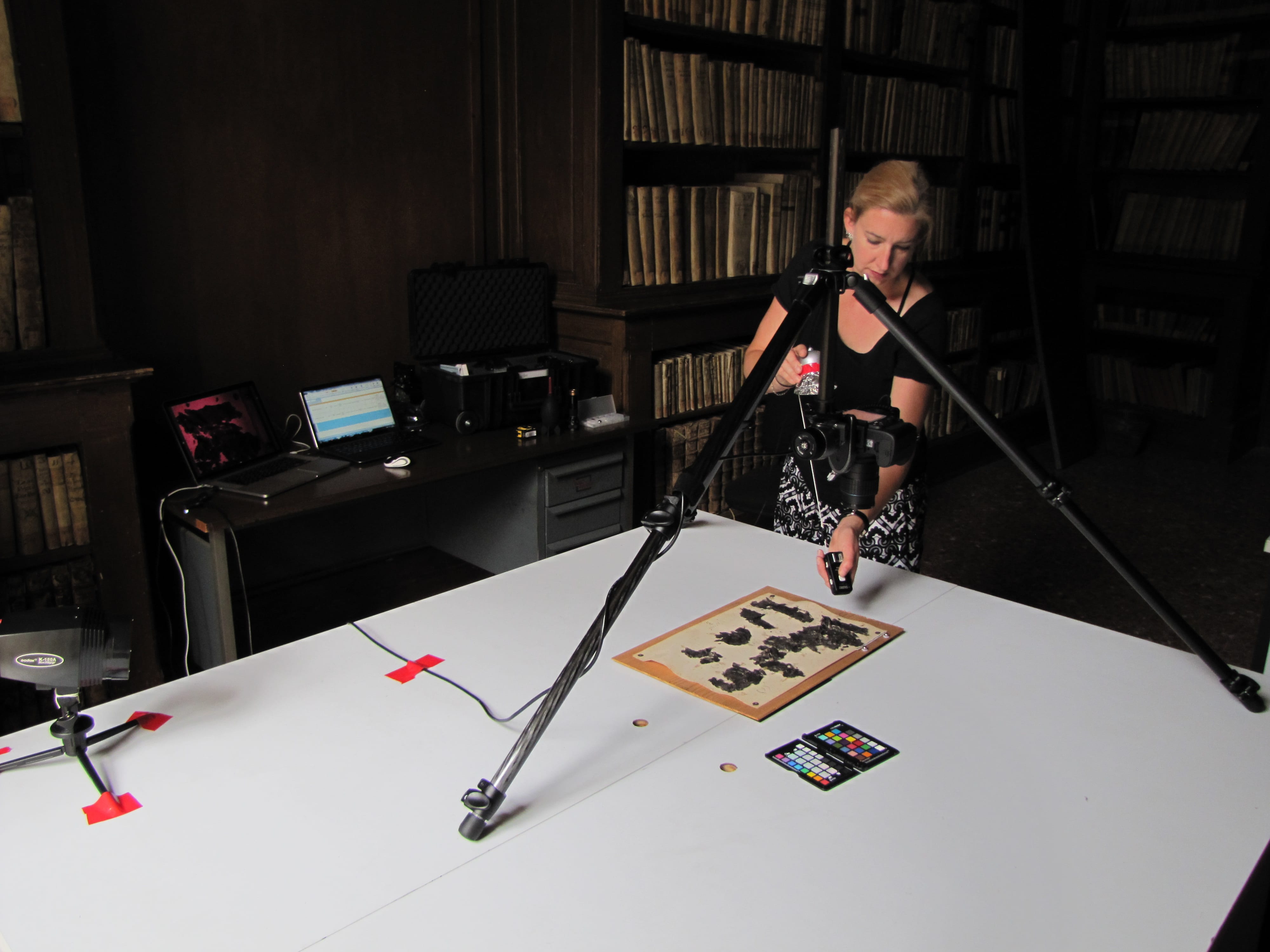
 Close
Close








